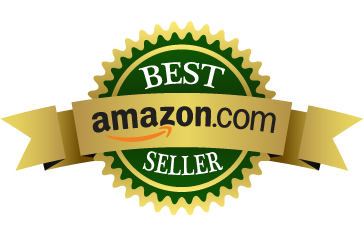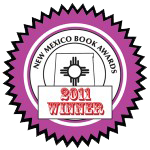KBUR Radio Interview – Steve Hexom Morning Show
 KBUR Radio – Steve Hexom Morning Show’s interview with Seth David Chernoff on Monday September 27, 2010
KBUR Radio – Steve Hexom Morning Show’s interview with Seth David Chernoff on Monday September 27, 2010
Audio clip: Adobe Flash Player (version 9 or above) is required to play this audio clip. Download the latest version here. You also need to have JavaScript enabled in your browser.
STEVE HEXOM: I’m joined by Seth David Chernoff. He’s an award winning author, two-time cancer survivor, marketing professional, and founder of multiple companies, featured on the Wall Street Journal, Chicago Tribune, San Francisco Chronicle, Popular Mechanics, Business Week, USA Today. And he’s been heard on radio stations across the nation on ABC, PBS TV, and he’s here with his book, or actually here via the phone with the book “Manual For Living: Reality, a user’s guide to the meaning of life, Seth David Chernoff, in battling cancer, surviving cancer and coming through that, a life-sharing changing experience to be sure to Seth David Chernoff. We say, Seth, good morning. How are you today?
SETH CHERNOFF: Good morning Steve. Fantastic, thanks for asking. How are you?
STEVE HEXOM: I’m fantastic too. I was thinking of, as I was looking through your book this morning, I was thinking – yesterday morning, I had one of those, you know, Monday morning is one of those you hustle bustle, it’s a start of the week. We got all of the things that I had to do, all of those things clicking in my mind, you know, that kind of a Monday morning, right?
SETH CHERNOFF: Absolutely!
STEVE HEXOM: I walked out the door, and of course I’m here very early in the morning, it’s a little after 4 in the morning, and I look up in the sky and is absolutely, strikingly, brilliantly clear sky, very dark, and all the stars just jumped out and it’s like, wow, it’s like all of a sudden, all of the things that I had to do and all the deadlines and all the things, the interviews that I had to schedule and the people that I have to talk to, and all of the prep work that had to be done, all of it just vanished and all of a sudden I just looked up in the sky for a couple of minutes and I said, wow, this is just incredible and I think maybe that, you know, you’re looking for the meaning of life or the thing to stop you from just simply, blindly going through life. That was at least an ah-ha moment for me. I don’t know if that happens to other people or not, but it certainly was for me yesterday. And I think part of that is a little bit like finding that way to change what you’re doing or change your perception of what you’re doing. Isn’t it?
SETH CHERNOFF: Yeah, you’re absolutely right. And that moment of peace, just finding these pauses in life to appreciate the beauty, I think that’s everything in life. And you know, for me, going through cancer there’s never a time that I’m not grateful for life. And so, if you can pause in all the chaos we have, in all the demands of our time, and just appreciate a few things about your life or about the world we live in, I think it changes our dynamic, it changes the way we interact with the people we care about and even the way we, you know, go to work and complete our business.
STEVE HEXOM: And, time. You start off talking about time. And time is something that is in our perception of time, and how we handle time, and how we deal with time, how much time we have left. It seems we are always dealing with time or trying to control time. And guess what, time is something we don’t control, time is something that we simply must experience. Isn’t it?
SETH CHERNOFF: Well, quite often I think time controls us. And I think, our dynamic and the way we relate to time really has an effect on the quality of our life, you know, the quality of our interactions. And I think that we need to take a moment to say, you know what, “Why are we in such a hurry to get everywhere?” You know, it feels like we’re going on the highway at 80 miles an hour, we’re not stopping to appreciate where we are? And so, I think if we kind of change our relationship to time, we can have a different value proposition for that. I mean, look, we all have the same amount of time in the day. It doesn’t matter how much money we have, or what religion we are, and we’re all going to die at sometime. So we all have this moment, and that’s the only thing that we can be sure of. So, you look at that moment and you say, you know what, I’m going to make some definite decision about how I’m going to connect with my kids, my wife, or even the way I’m going to serve at my job. And I think we can change that dynamic so we’re not always in such a hurry and stressed out about where we have to be and all that we have to get done.
STEVE HEXOM: Seth, tell me just a little bit about, if you could briefly,Seth David Chernoff before cancer and Seth David Chernoff after cancer. Describe cancer, and how it changed your life?
SETH CHERNOFF: Well, Steve, that’s an excellent question. You know, I really felt like I had my life together before cancer. You know, I exercised, I ate organic foods, I was a kind person of service in my life. I really felt like everything was going great. And then one day, I went to the doctor’s office on a Friday at about 2:30pm. I just met my wife, you know, a handful of months earlier, I was madly in love. And I go to the doctor, you know, at like 2:30pm they’re doing the CAT scan and everything else. The doctor finally comes in around 5:30pm, and he says, Seth, you’ve got cancer, it doesn’t look good. And I’ve got dinner plans tonight, and I’m canceling them – I’m going to be here and I’m going to operate on you at 7:30pm. And of course, I was in denial, and I couldn’t believe it and I needed more time to think about it. But in the end, he operated me that night. And, pretty much turned my entire life upside down, which you can imagine, it was cancer, right? So, I went through surgery and some follow up things, and for the next five years I just had an epiphany that I have to change the way I live my life. You know, I was running some companies, I had employees, I wasn’t probably giving enough time to my kids, and my wife, and I started writing. I starting writing the Manual For Living. And then I got cancer again, five years after that, a different form of cancer, and I had to go through a couple of surgeries and radiation. At that point I said: “you know what, I can’t keep living this way.” So, I simplified my life. I toned it down, I changed up how I was living and I spent the next five years, you know, editing and kind of living the possibility of what the Manual For Living would do for me and for the world. So, I think I made, I started to live the life that I felt like was going to bring happiness to me and fulfillment to me, and would be a greater service to the world. And so that’s kind of the path I’ve been on, I’m not there, I don’t think you ever get there. But I definitely have a more conscious awareness of my role in the world for sure.
STEVE HEXOM: Tell me about illness in general, dealing with illness. You have a chapter entitled “Illness” and you have one and its “cancer of the soul”. What exactly do you mean by that?
SETH CHERNOFF: Well, I think illness is an amazing teacher for us. And look, we are all going to face obstacles in life. We can’t avoid that. You know, I think sometimes we have this misconception that life is supposed to be great. You know, life is just challenging. We’re all going to deal with illness at some point in time. We are going to deal with death of our loved ones most likely and even with our own death. So, I think we have to change our perspective that, with that inevitability, we can change the way we relate to that and maybe learn from illness. For me, illness was a great teacher for me. You know, it taught me to open my horizons and maybe change the way I lived my life; slow down a little bit, connect with people in the moment. So it was a big deal for me. But I think there’s also something, and I talk about the book, you know, cancer of the soul, and I think many times we are out there living and we think ok I have a physical cancer well that must be really bad. But, it’s when our soul is unfulfilled in life, that I think is the greatest challenge. Because we each have a part to play in this big active life, and many times we get stuck in the complacency of the moment, or we’re afraid to take action that we know will make a difference in life or we know will make us happy. And we don’t do it, ‘cause we’re afraid or we feel like we need to stick with the status quo. So, I feel like that there’s something for each of us to make better decisions about how we live our life and the choices that we make.
STEVE HEXOM: How big of a monster is fear?
SETH CHERNOFF: Fear is a pretty good size monster, it is. I don’t think any of us live without fear. But I do think, it’s how we relate to fear. You know, for me actually putting this book out was a very scary thing. It definitely brought up a lot of emotions for me. Cancer of course brought up emotions. But when I got through cancer, there was a relationship that I had to death that I never had before. But I find that people who’ve been through this or some kind of traumatic illness have that new defined relationship to death where they’re not afraid anymore. They realize that, we realize that, you know, at some point in time it comes and there’s nothing to be afraid of. And so, I think there’sthat relationship that we have and the acceptance to death from the perspective of living our life and realizing that we really do have this moment and we really don’t know how much time we have left. And, you know, illness has a way of bringing that to the forefront for us.
STEVE HEXOM: You mention the fact of, you’re talking about “Was I really doing as much as I could for my wife, for my children or did I have my life in balance”. And you talk about balance at the back of the book, but I think appreciation, how important is appreciation of what you have to be able to understand where you’re going?
SETH CHERNOFF: Yes, Steve you’re absolute right. What I talk about is, in the context of our life, it’s not one huge thing that’s going to bring us happiness or fulfillment. It’s a lot of little things. And so, the Manual For Living is kind of broken up into these little sections. So if we look at each aspect of our life and we can make a difference there and make some enhancement there. Overtime, we end up changing the whole way that we live. So you look at appreciation and gratitude, there’s nothing that will change our mindset like expressing our gratitude and expressing kindness in appreciation in our life. So, if you make that one little change, your days going to be better. You’re going to have a better day. You wake up, things are falling apart, your house of leaking, you had a little argument with your daughter. You know, you take a moment, pause, look at the stars, and have some appreciation. Your whole perspective on life is going to change.
STEVE HEXOM: You have this book and you say it’s not a book you read, you sit down and read from cover to cover. It’s a book to pick up and to jump around a little bit. To find an insight, to find a nugget, to find something inspirational, I think that’s really a good way to put how to deal with this book? It is a manual and it’s like, “Ok, I’ve got something wrong with my car. I need to go, look and see what’s wrong in this manual and I fix it.” Is it fixing something?
SETH CHERNOFF: Well, I think that’s one perspective when looking at it. You know, when I got down to writing the manual I didn’t know what it was going to become. I just wrote and wrote and wrote, and in the end it ended up being around 700 pages, far too big. I ended up having to break it into three; this is the first book. But what happened is, you know, our society is very ADD if you will. We just don’t, we can’t take on any more tasks. We don’t have time, you know, I don’t remember the last time that I actually sat down and read a book from cover to cover. I probably never have. But I’m the kind of person who reads section of a book, because that’s what I have time for, you know, in between a meeting, right before I go to bed, first thing in the morning I’ll just read a section that will put me in a perspective. And I felt like that’s what people needed. They don’t need another big task. They need something where, you know, it’s a moment of challenge or triumph and they want a piece of insight. That’s really what the book is about. So, whatever mood you’re in, you literally open the book up and yes it’s kind of like a manual. You’ll get an insight about balance, or managing our priorities, or kindness or whatever it is.
STEVE HEXOM: Alright, here’s a tough one. Maybe or maybe not, if you had to sum up in one word what the most important single element of life is? What would that one word be?
SETH CHERNOFF: Well, I might surprise you, but I was going to do one word, I would say SERVICE. I would say service, I would say that the happiest people that I have ever met no matter how much money they have, or how big their family, or how much love – if they have found a way to be of service. And it doesn’t mean that you sacrifice yourself, it’s that you realize that your life is about service. And you are rewarded through that service. The happiest people, I believe, are those who serve and through that service they find amazing amounts of gratitude and happiness.
STEVE HEXOM: Fantastic. It’s Manual For Living, A User’s Guide To The Meaning Of Life, it’s a wonderful book. It’s Seth David Chernoff who has beaten cancer twice, changed his life and maybe he can help change yours as well. Seth, is the book everywhere right now?
SETH CHERNOFF: Sure is, it’s in your favorite bookstores. If they’re sold out. They can order for you. Again, it’s on Amazon, and the website is www.manualforliving.com if you want to learn more about it.
STEVE HEXOM: Seth David Chernoff, thank you so much for joining us today, always a pleasure.
SETH CHERNOFF: Steve. Thanks for having me.
(END)
Leave a Website Comment










